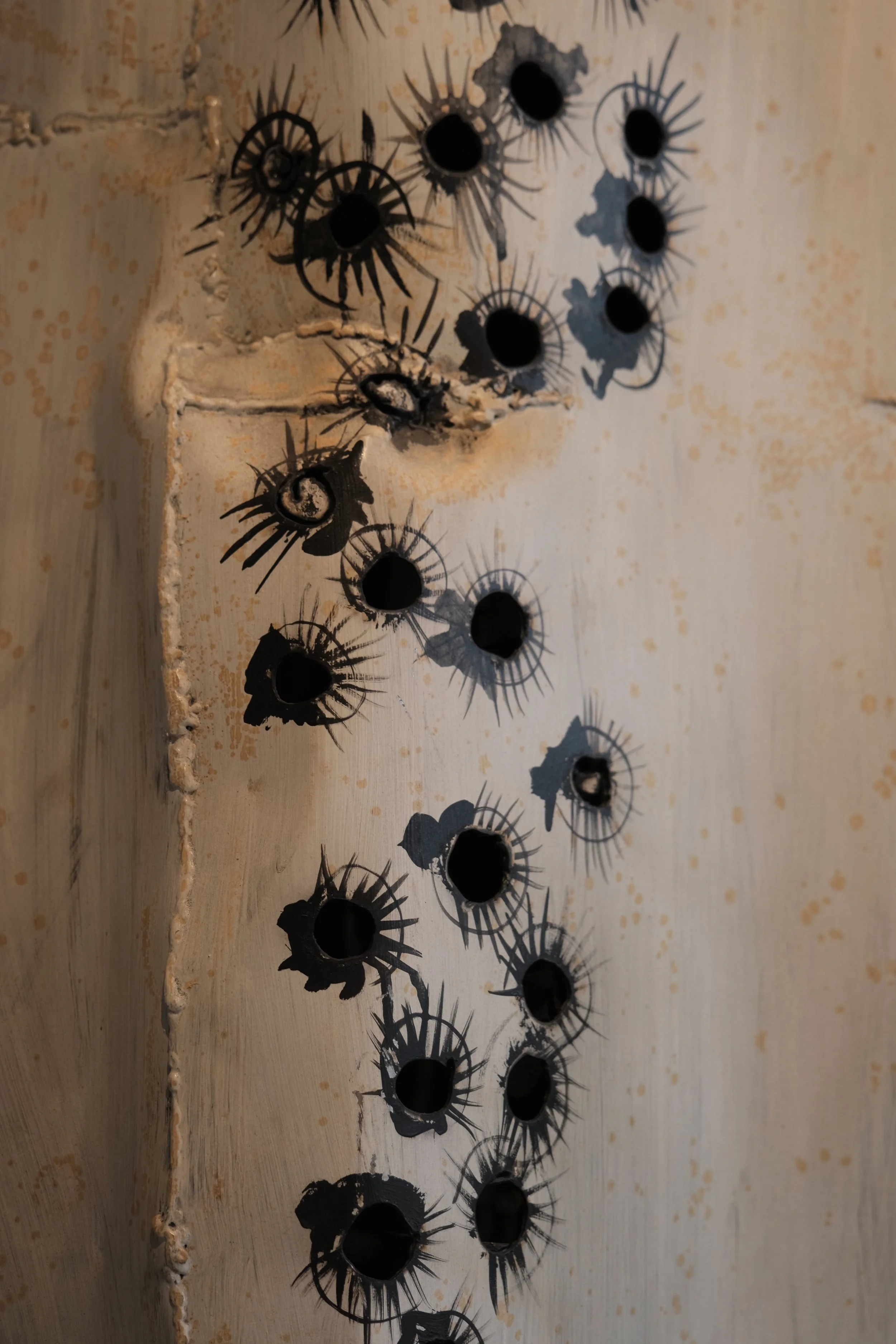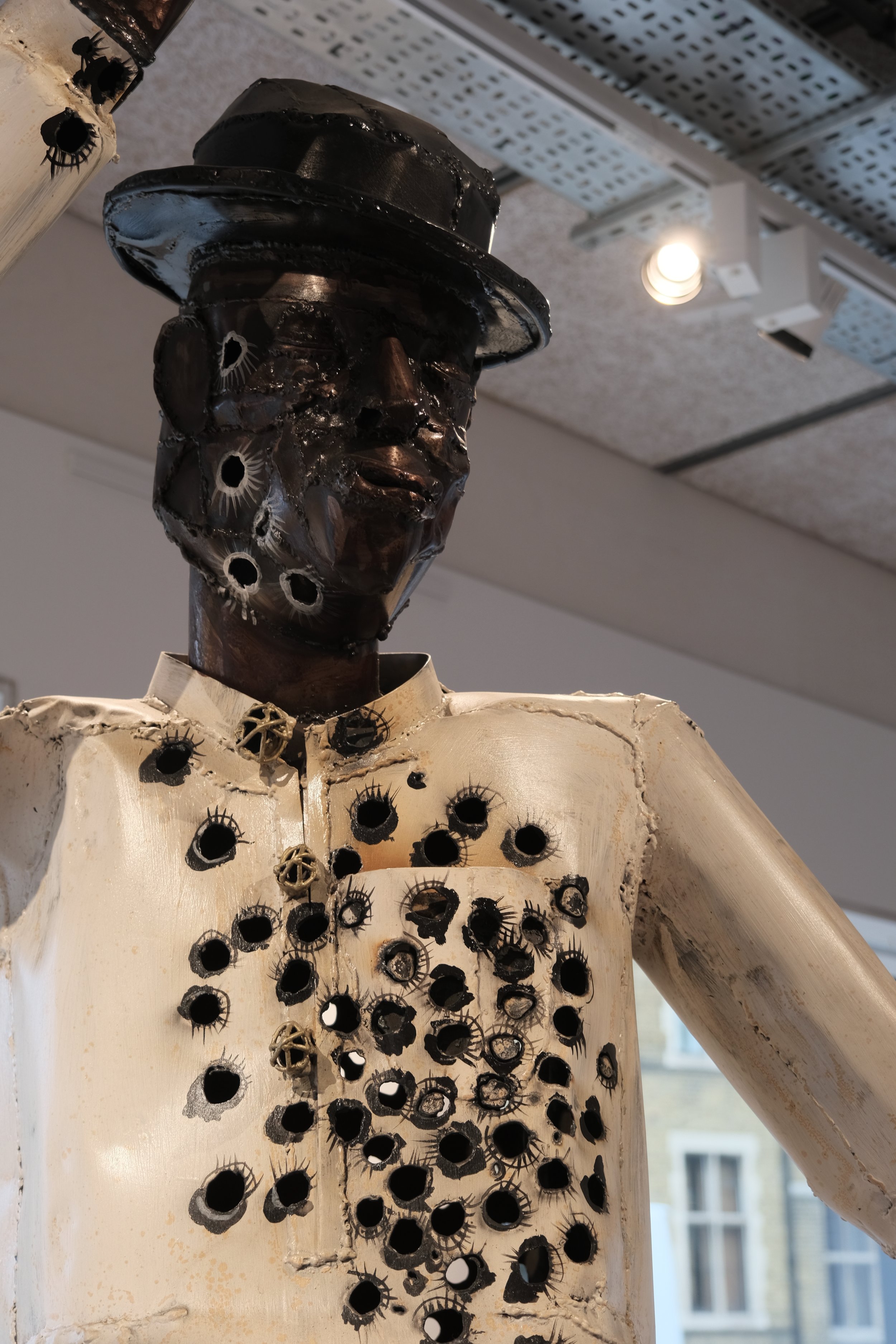MORLEY GALLERY
embodied
7 - 28 October 2023
Sokari Douglas Camp, Londoneer, 2010
"The body is where our instincts reside and where we fight, flee, or freeze, and it endures the trauma inflicted by the ills that plague society."
- Resmaa Menakem, My Grandmother's Hands: Racialized Trauma and the Mending of Our Bodies and Hearts.
Morley Gallery is proud to present embodied, featuring works by Sokari Douglas Camp, Sonia E Barrett, Camilla Dilshat, Ahyeon Ryu, Adaesi Ukairo and Hannah Uzor.
Curated by art historian and writer Melissa Baksh, this group exhibition, which brings together art works from a range of mediums including sculpture, installation, painting and moving image, explores the complexity of lived experience and conscious emotion by way of the bodily form. Throughout the exhibition, the six artists grapple with the human body, be it in resistance or rest; addressing its fragility - but also, resilience – when navigating the socio-political, colonial legacy, and diasporic identity.
The senses as we know them are deeply bound up with structures of power, and the opposition between the mind and body has long been correlated with an opposition between male and female. From the eighteenth century onwards, European Imperialism relied heavily on strengthened and enforced modern categories of difference – race, gender, sexuality, and religion. Alongside a burgeoning ideal of the hyper-masculine European male, senses pertaining to the mind, such as reason and rationale, which were traditionally associated with “masculine” pursuits such as science, were privileged. The body, however, was regarded as inherently feminine, ‘other’; something to be tamed and even feared, with women deemed more corporeal than their male counterparts. Historically, there has been a sense of scepticism and even suspicion with regards to being 'in' your body.
Today, there is recognition that bodies are retainers; of history, memory, and trauma. Indeed, trauma - including historical, ancestral and intergenerational - can physically be mapped in the body, and recent research suggests it is even passed on in our DNA, inextricably linking us to our history and ancestral past.
However, just as trauma occurs fundamentally in the body, so does healing. As Menakem notes, one characteristic that nearly all human bodies share is a profound ability to heal. When we heal, this ripples outwards, spreading health and resilience from generation to generation. Throughout time, black and brown women's bodies have been oppressed, othered and objectified. Today, and always, being in your body is a radical act of resistance.
Opening hours: Monday – Friday 12:00pm-5:00pm | Saturday 1:00pm-5:00pm
Curator-led exhibition tours: Saturday 7th October 2:00-3:00pm | Wednesday 18th October 6:00-7:00pm

































